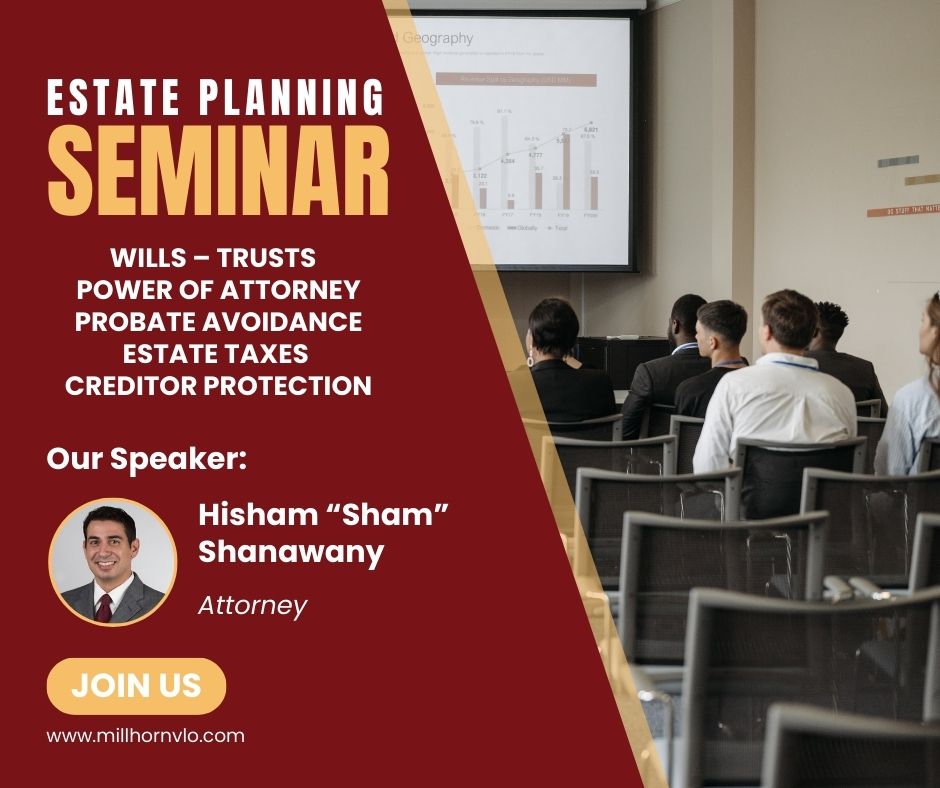An exclusion from gift taxes for gifts by a donor to a donee which is available on an annual basis. The annual exclusion is currently $15,000.00 per donor, per donee, per calendar year (indexed for inflation after 1998). The gift must be a “present interest” i.e., a gift available immediately to the donee, as opposed to a gift not available until the future or a gift requiring action to qualify.
A person who is, or will be, a recipient of benefits from a Person, Will, Trust or Estate.
BYPASS TRUST
A Trust which contains property on which Federal Estate Taxes are paid at the death of the first spouse to die and which typically is not taxed at the death of the second spouse. The tax on the property in this Trust is paid by the Unified Transfer Credit. This type of Trust is often referred to as the Credit Shelter Trust or “A-B” Trust.
The amount of property of a decedent on which the Estate Tax is essentially paid by the Unified Credit (Maximum Exclusion Amount)
Year Exempt Amount Unified Credit
1997 $ 600,000.00 $ 192,800.00
1998 $ 625,000.00 $ 202,050.00
1999 $ 650,000.00 $ 211,300.00
2000 $ 675,000.00 $ 220,550.00
2001 $ 675,000.00 $ 220,550.00
2002 $1,000.000.00 $ 345,800.00
2003 $1,000.000.00 $ 345,800.00
2004 $1,500.000.00 $ 555,800.00
2005 $1,500.000.00 $ 555,800.00
2006 $2,000.000.00 $ 780,800.00
2007 $2,000.000.00 $ 780,800.00
2008 $2,000.000.00 $ 780,800.00
2009 $3,500.000.00 $1,455,800.00
2010 Repealed
2011 $5 million $1,730,800.00
2012 $5.12 million $1,772,800.00
2013 $5.25 million $2,045,800.00
2014 $5.34 million $2,081,800.00
2015 $5.43 million $2,117,800.00
2016 $5.45 million $2,125,000.00
2017 $5.49 million $2,141,800.00
2018 $11.18 million $4,417,800.00
2019 $11.40 million $4,505,800.00
CODE
“Code” means the Internal Revenue Code of 1986, as amended or any corresponding Federal Tax Statute.
DURABLE POWER OF ATTORNEY
You appoint a person to handle your affairs for you. You provide that the power of attorney retains its full force and effect although you later become incapacitated and unable to act. Power of attorney ends at death.
Any tax which is charged to the Estate as a whole, as contrasted with a tax charged to the recipients of the assets distributed from an Estate. Estate Taxes exist in the Federal Tax Codes and in some State Tax Codes.
A gratuitous transfer of property to someone else without receiving adequate consideration in return.
GIFT PROGRAM
A planned program of making annual gifts to beneficiaries within the annual exclusion.
GRANTOR
In Trust usage, the person or persons who create and owns a Trust (The terms Trustor and Settlor are sometimes used. All terms have the same meaning).
A person who will receive the income from a Trust for a specified period of time (the time period could be several months to the lifetime of the beneficiary).
INTER VIVOS TRUST
A Trust which is created and funded during a person’s lifetime, as opposed to a Testamentary Trust which is created by a person in a Last Will and Testament. This Trust holds assets during a person’s lifetime and thereby removes those assets from probate at the person’s death. This type of Trust is often called a “Living Trust”.
This is an annuity payable to two persons, usually husband and wife through the lifetime of the survivor of the two of them.
A Trust which is created and funded during a person’s lifetime, as opposed to a Testamentary Trust which is created by a person in a Last Will and Testament. This Trust holds assets during a person’s lifetime and thereby removes those assets from probate at the person’s death. This type of Trust is sometimes called a “Inter Vivos Trust”.
LIVING WILL ( DECLARATION)
A declaration that if the Creator is terminally ill, with no expectation of recovery and death is imminent, then life-prolonging procedures may be withheld or withdrawn.
A deduction allowed on the Federal Estate Tax Return (Form 706) for property passing in a qualifying manner to a surviving spouse.
MINIMUM DISTRIBUTION
In retirement planning, a participant is required to begin making withdrawals from his or her retirement plans in the year after attaining the age of 70-1/2. These withdrawals must meet certain minimum distribution requirements based on the payout election made by the plan participant. Generally, the plan participant must withdraw the funds of projected life expectancy or some shorter period.
POUR OVER WILL
A special form of a Will that directs all assets inadvertently left outside a Trust to be “poured over” (distributed) into a Trust after the Probate of those assets. In many States this document also provides for the distribution of a person’s personal property.
PROBATE
A State Probate Court proceeding where a person’s estate is administered and assets distributed under Probate Court supervision. Probate proceeds are open to the Public. Probate administration can cost the Estate 5% – 6% or more of the value of the assets in the estate and can last many months or longer. Usually requires the hiring of an attorney. Generally can be avoided by the use of a Living Trust.
QTIP mean Qualified Terminable Interest Property. In the area of Federal Estate taxation, a marital deduction for limited or terminable interests in property if all of the income were payable to the surviving spouse during the spouse’s lifetime.
The persons who will receive an asset from a Trust or Will following the death of a person who had the right to receive the “income” from a Trust or Will.
REQUIRED BEGINNING DATE
The date on which a retirement plan participant is required to begin making withdrawals from a retirement account, usually April 1st of the year following the year the participant reaches the age of 70-1/2.
A person’s own property, or property received by inheritance, gift or personal injury settlement, while residing in a separate property state or prior to marriage in a community property state, and the assets acquired from those funds.
SETTLOR
In Trust usage, the person or persons who create and owns a Trust (The terms Grantor and Trustor are sometimes used. All terms have the same meaning).
SPOUSAL ROLLOVER
Retirement plan and IRA plans payable to a surviving spouse, the spouse has the option to “roll over” the funds into the spouse’s own IRA, thereby deferring the income tax on the plan funds.
A Testamentary Trust is created by a person in a Last Will and Testament. Only after probate of the Will does a Testamentary Trust come into being, and it often must be registered under state law. Testamentary Trust transactions may be subject to court review.
TRANSFER TAX
All applicable Federal Estate taxes, State Estate or Inheritances Taxes and Generation-skipping Transfer Taxes.
TRUST
A Trust which is created and funded during a person’s lifetime, as opposed to a Testamentary Trust which is created by a person in a Last Will and Testament. This Trust holds assets during a person’s lifetime and thereby removes those assets from probate at the person’s death. This type of Trust is often called a “Living Trust”.
TRUSTEE
Present manager of the trust. The Trustee makes all of the day to day administrative decisions for the Trust. The Trustee is the one that signs checks, executes deed, makes investment decisions and generally administers the Trust following the terms set forth in the Trust document.
TRUSTOR
In Trust usage, the person or persons who create and owns a Trust (The terms Grantor and Settlor are sometimes used. All terms have the same meaning).
TRUST SITUS
The State under whose law a Trust is governed.
A credit applicable against Federal Gift and/or Estate Taxes. (See Credit Shelter Trust Amount)
A Last Will and Testament is a written document, executed according to the laws of your State. A Will allows you to give the Court instructions on several critical matters: (1) Who gets your property, (2) Who is in charge of making the distribution, and (3) Who you want to be named guardian of any minor children. A Will must go through the Probate process
Our Attorneys
Michael D. Millhorn
For the past 25 years, Attorney Michael D. Millhorn has focused his practice on estate planning, advising his clients on wills, trusts, estate planning, estate and trust administration and probate administration.
View Attorney ProfileHisham ‘Sham’ Shanawany
Hisham has been practicing law since 2004 and specializes in Estate Planning, viz. wills, trusts, powers of attorneys, prenuptial and post nuptial agreements, and beneficiary agreements.
View Attorney Profile


